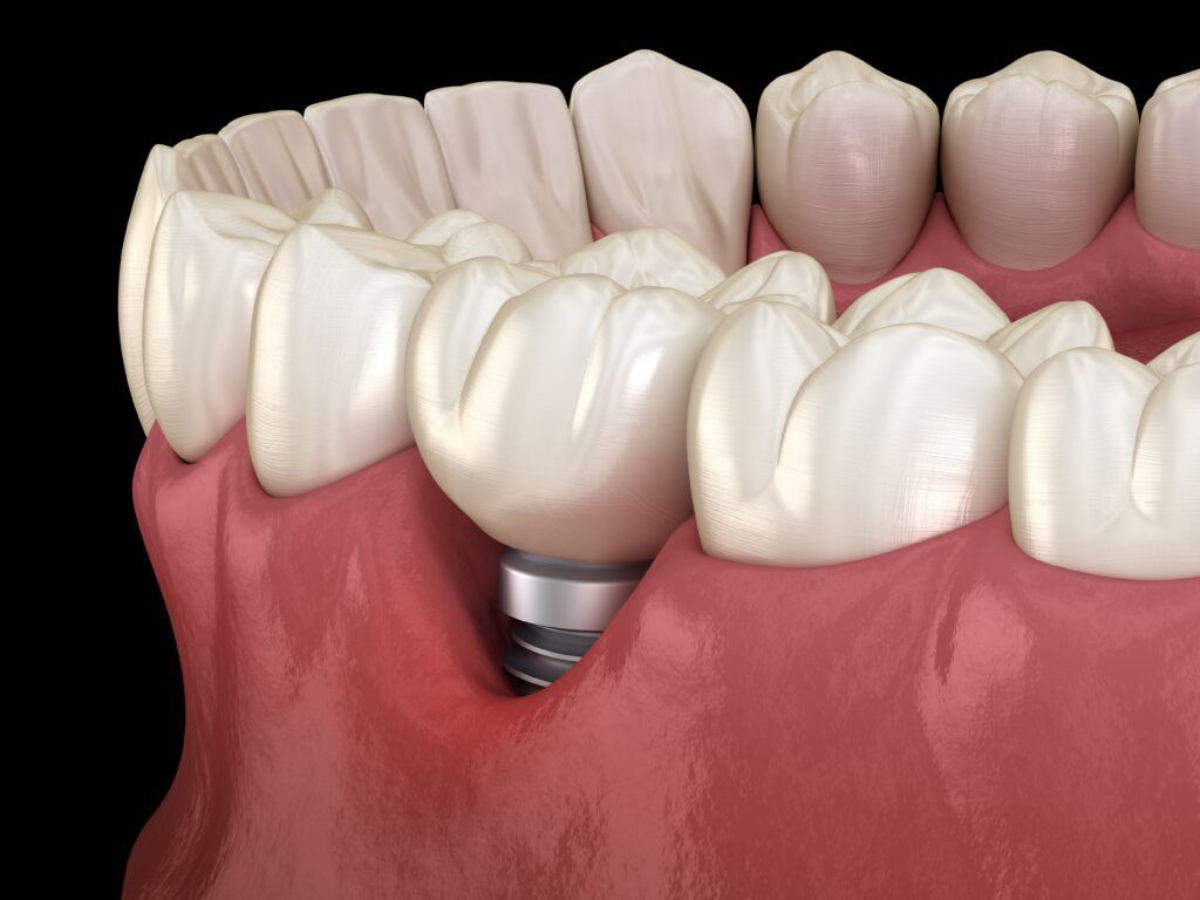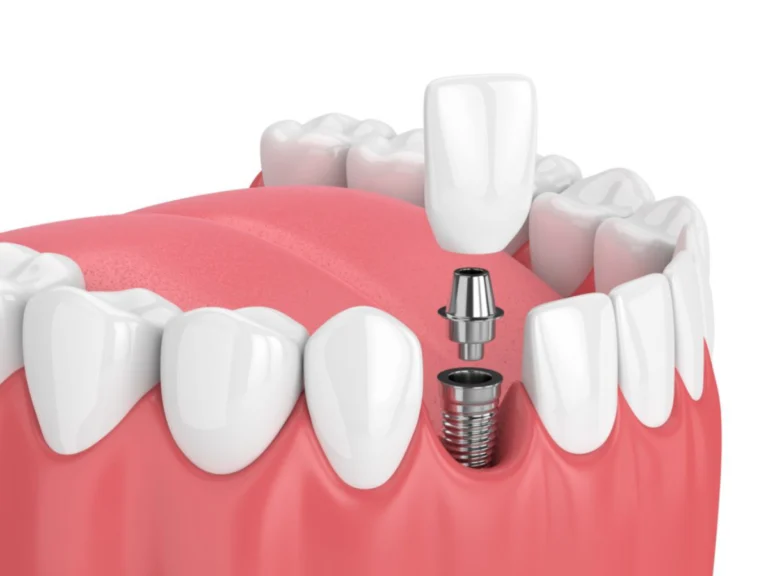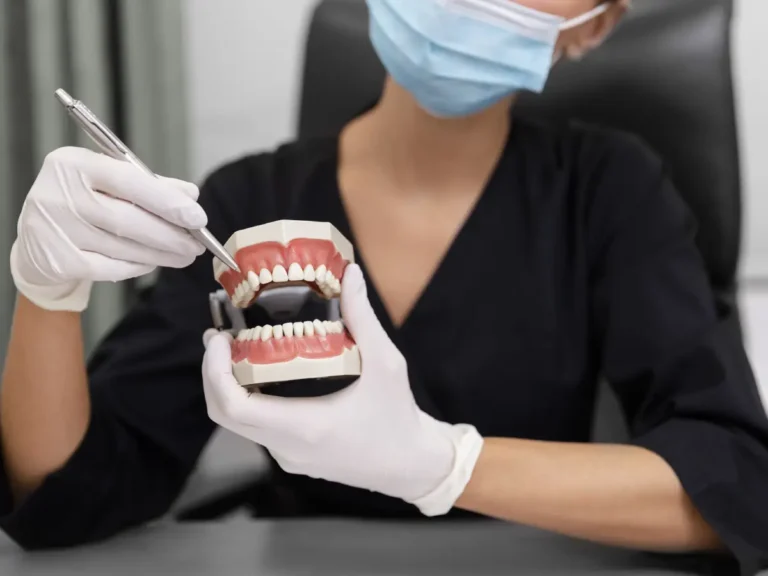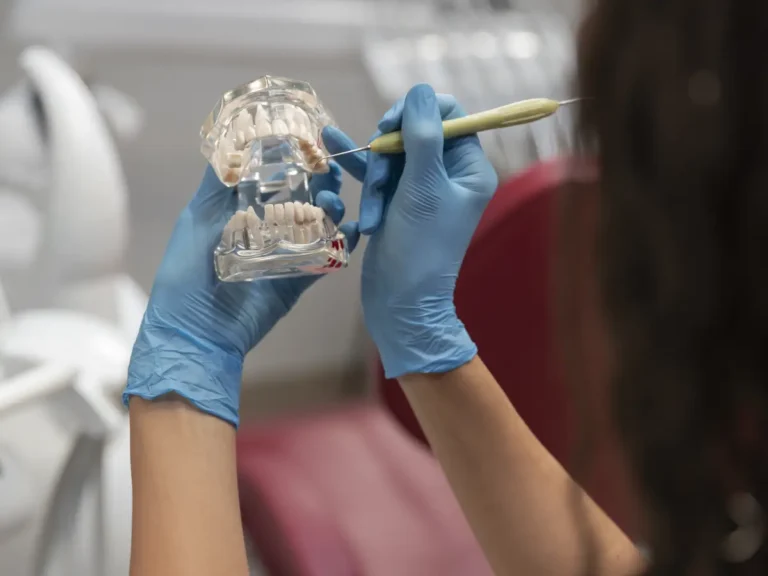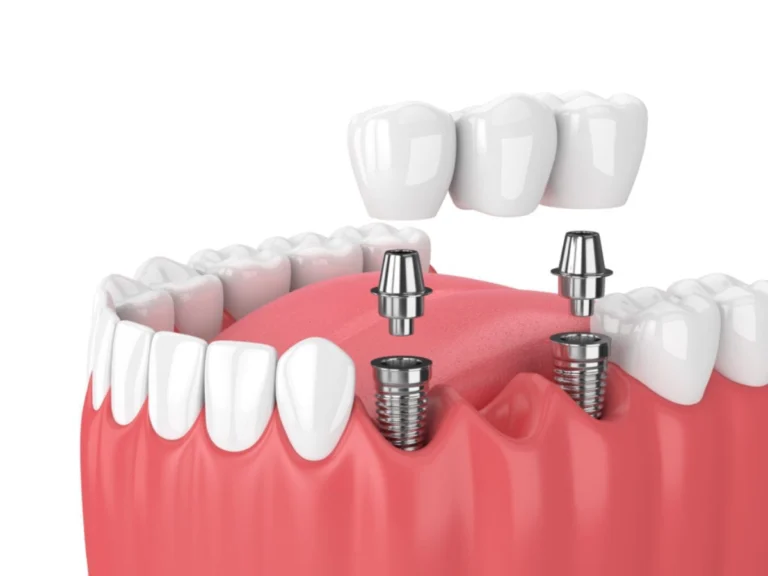Considering teeth replacement options, dental implants stand out as a permanent solution.
There are several types of dental implants available, and the Dental Implant Procedure typically involves placing artificial tooth roots into the jawbone.
While the benefits of dental implants include natural appearance and improved oral function, patients should be aware of potential Side Effects of Dental Implants, such as temporary discomfort.
Dental implant recovery usually takes a few months for complete healing, and many patients explore dental implant turkey options due to cost considerations.
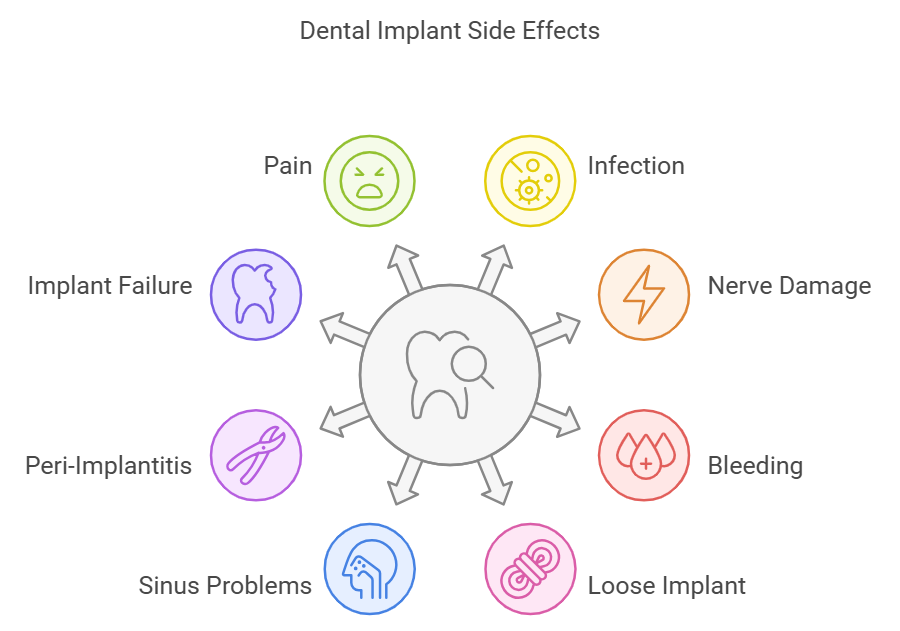
Common Side Effects of Dental Implants
Under the care of a skilled oral surgeon, dental implant surgery should be a safe procedure with few complications.
However, dental implant problems and side effects are a normal response to the changes that occur during surgery.
Fortunately, these side effects are only temporary and usually not very severe. It is a good idea for patients to be aware of these side effects:
dental implant infection
Infections may occur after implant surgery, characterized by increased pain, swelling, redness, or discharge from the implant site. Antibiotic treatment is often effective for infections, but early detection is critical to prevent implant failure.
Adherence to proper post-operative care instructions, including oral hygiene and follow-up appointments, is also critical to early detection and careful management of infections.
Nerve Damage
Dental implant surgery can cause nerve damage. Your dentist will take x-rays before the procedure to identify the nerves in your mouth. Nerve damage can have permanent effects, so you should discuss the risks with your dentist before the procedure.
Bleeding
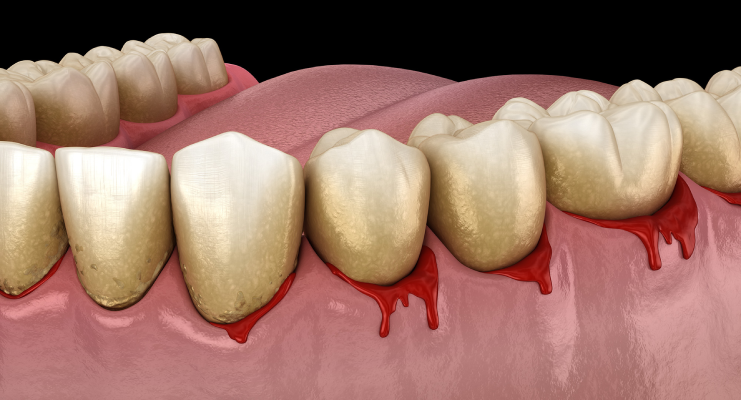
Although bleeding is not usually a problem after dental implant treatment, it is common for patients to notice some bleeding at the implant site. This bleeding is usually minimal and does not last more than a day or two.
Loose Implant
Your dentist may make a mistake when placing your implant. If there is a problem with the location or angle of the implant, it can lead to complications.
The implant may not bond to the bone properly, it may be too close to neighboring teeth to cause discomfort, or it may become loose or painful. If this happens to you, you may need to have the implant removed or replaced with a new one.
Sinus Problems
One of the main risks of dental implants is damage to the sinuses. The upper jaw is located directly under the sinuses.
Implants that replace the upper teeth can potentially penetrate the sinuses, causing discomfort or possible infection. If this happens, your dentist will tell you what you can do to manage the situation.
Peri-Implantitis
This is a disease that can affect the gums and surrounding bone, increasing the risk of dental implants not being successful.
Over time, peri-implantitis can lead to bone loss and implant disintegration. Your chances of developing peri-implantitis will be reduced if you do not smoke, live a healthy lifestyle, and maintain good hygiene.
Implant Failure
Dental implant surgery is known for its extremely high success rate, with studies showing a success rate of 98.6%. However, like any other surgical procedure, there may be a small chance of implant rejection or failure. Signs of implant failure include:
- Implant looseness: If the implant feels unstable or has moved out of place, it may not have properly integrated with the jawbone.
- Persistent pain and discomfort: Pain that does not subside over time or gets worse can indicate implant failure.
- Persistent swelling and redness: Swelling around the implant site after the healing period may indicate a problem.
- Gum recession: If your gums begin to recede and expose the implant, this may be a sign of rejection.
Implant fracture
Implant fracture occurs when the dental implant itself breaks or cracks, which can happen due to excessive force, manufacturing defects, or improper placement.
This serious complication typically requires immediate attention from a dental professional and often means the implant must be completely removed and potentially replaced.
The fracture can occur in different parts of the implant system – the implant body, abutment, or prosthetic crown.
Pain at the dental implant site
Pain at the dental implant site is a common experience during the healing process but can also indicate complications if it persists or becomes severe.
Normal post-operative pain typically subsides within a few days to weeks after surgery. However, persistent or increasing pain might signal infection, implant mobility, or other complications that require professional evaluation.
The pain can range from mild discomfort to sharp, intense sensations that affect daily activities.
Damage to surrounding teeth or tissues
Damage to surrounding teeth or tissues can occur during implant placement or develop over time due to improper positioning or excessive pressure.
This might include injury to adjacent tooth roots, nerves, blood vessels, or soft tissue structures.
The damage can lead to sensitivity, infection, or even tooth loss in severe cases. Careful pre-surgical planning and precise placement technique are essential to minimize this risk.
Osseointegration failure
Osseointegration failure occurs when the implant fails to properly bond with the surrounding bone tissue.
This critical process, where the bone grows around and fuses with the implant surface, is essential for long-term implant stability.
Failure can result from poor bone quality, infection, excessive movement during healing, smoking, or systemic health conditions. When osseointegration fails, the implant becomes loose and may need to be removed.
Bad breath
Bad breath, or halitosis, following dental implant surgery can indicate various issues ranging from normal healing to serious complications.
While some degree of bad breath is common during initial healing, persistent bad breath might signal infection, poor oral hygiene, or peri-implantitis.
Regular cleaning and proper maintenance are essential to prevent this problem.
Bruising
Bruising is a common post-surgical effect that typically appears within days of implant placement. It can affect the gum tissue, cheek, or chin area and may look alarming to patients.
While usually harmless and self-resolving within 1-2 weeks, extensive bruising might indicate excessive trauma during surgery or a bleeding disorder that requires attention.
Health conditions
Health conditions can significantly impact implant success and must be carefully evaluated before proceeding with treatment.
Conditions such as diabetes, autoimmune disorders, and cardiovascular disease may affect healing and osseointegration.
Proper management of underlying health conditions and close monitoring during healing are essential for optimal outcomes.
Swelling
Swelling is a natural inflammatory response following implant surgery but should gradually decrease over time.
Initial swelling typically peaks within 48-72 hours post-surgery and should substantially resolve within a week.
Persistent or worsening swelling, especially if accompanied by pain or fever, might indicate infection or other complications requiring immediate attention.
Toothache
Toothache around dental implants can develop for various reasons, including pressure on adjacent teeth, bite misalignment, or referred pain from the implant site.
While some discomfort is normal during healing, persistent toothache-like pain might indicate problems with implant positioning, nerve irritation, or infection.
Proper diagnosis is essential to determine the underlying cause and appropriate treatment.
Pain
While post-operative pain is expected and usually resolves with acute pain relief measures, prolonged pain weeks after surgery warrants a visit to the doctor to rule out complications such as incorrect implant placement or infection.
Swollen Gums
Swelling that persists beyond the first few days after surgery is part of the normal healing process. It can indicate the body’s efforts to integrate the implant. However, if swelling persists for several weeks after surgery, it may require further attention, as this could be a sign of infection.
Gingival Recession
The gingival surrounding the implant site may become sensitive as it heals, which is normal. However, significant gum recession around the implant can affect the aesthetic result and may expose the implant structure, leading to complications. Therefore, your dentist may suggest interventions to support gum health.
Allergic Reaction
Although rare, some patients may experience allergic reactions to the materials used in the implant, such as titanium alloys. Symptoms can include itching, rash, or swelling around the titanium implant site. Therefore, it is important to contact your dental professional immediately.
Who Shouldn’t Get Dental Implants?
- Uncontrolled Diabetes: The main reason for this is that if your bone and body don’t heal properly, the bone in your body won’t form properly around the implant, and we’re setting ourselves up for failure.
- Poor oral health: Someone who does not brush their teeth regularly and allows their teeth and gums to decay without any action is not an ideal candidate.
- Bad habits: Some dentists determine that if you smoke or chew, you are not an ideal candidate for dental implants. The reason is that bad habits like these often directly affect oral health and hygiene as well.
Dental Implants with MedConsulto
Dental implants provide a secure foundation for a full range of dental restorations. They are the ideal solution for patients who have lost one or more teeth. To learn more about these beneficial implants and the treatment process, contact us.
FAQS
Is getting a tooth implant dangerous?
No, dental implant surgery is not dangerous when performed by a qualified professional. While it carries minor surgical risks like infection or nerve damage, serious complications are rare.
Are dental implants bad for your health?
No, dental implants aren’t bad for your health. They’re made of biocompatible titanium that’s safe for the body and actually helps maintain jawbone health.
Are dental implants safe long term?
Yes, dental implants are safe long-term, with 95-98% success rates over 10+ years. They can last a lifetime with proper oral hygiene and regular dental care.

